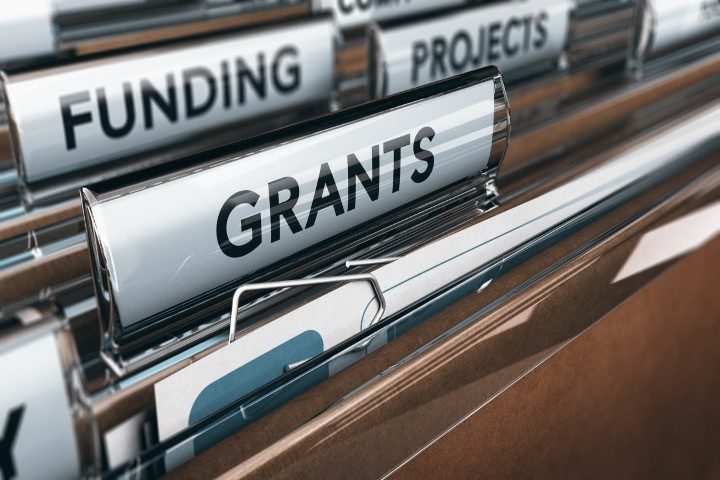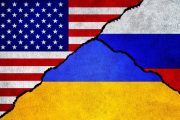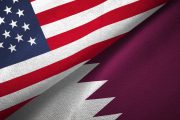
The United States government has continued to give millions of taxpayer dollars to EcoHealth Alliance long after learning that the controversial organization had funneled federal grant money to the Wuhan Institute of Virology (WIV) to allegedly conduct gain-of-function research on bat coronaviruses.
A mere week after the National Institutes of Health (NIH) ran into compliance problems with EcoHealth and decided to cease collaboration in October 2021, the U.S. Agency for International Development (USAID) gave EcoHealth Alliance a $4.67 million grant for overseas foreign-assistance programs for five years. Between 2009 and 2019, USAID provided $1.1 million to EcoHealth for a global project of USAID’s Emerging Pandemic Threats Program, called PREDICT.
In a letter to USAID Administrator Samantha Power on Monday, more than two dozen House Republicans raised a litany of concerns regarding the grant. They wrote,
We are deeply concerned by this award given EcoHealth and Dr. Daszak’s [President of EcoHealth Alliance] troubling record of failing to report findings from federally funded research, refusing to cooperate with congressional oversight of federal funding awarded to the organization, and collaborating with the Wuhan Institute of Virology (WIV), the likely origin site of the COVID-19 pandemic, on dangerous research experiments involving viruses manipulated to increase transmission in humans.
The lawmakers pointed out that the notorious organization that received multiple multimillion-dollar federal grants has routinely failed to comply with federal reporting requirements. For example, the NIH reported in October 2021 that EcoHealth did not report findings from federally funded studies on how well bat coronaviruses grow in mice. Notably, the Chinese researchers determined that mice with “humanized lungs” became sicker with an engineered version of bat coronavirus. While the terms of the grant required such a finding to be reported immediately, EcoHealth remained silent.
In addition to that, EcoHealth did not disclose subawards to the WIV from 2015 to 2019 until they were pressed by the NIH to do so in July 2020. “This behavior is especially concerning given any search on the public database usaspending.gov would not show EcoHealth’s funding of the WIV until July 2020,” wrote the GOP lawmakers.
The letter went on to remind the USAID administrator and the public of Dr. Daszak’s role in covering up the lab-leak theory of SARS-CoV-2 origin.
First, Daszak provided inaccurate statements and withheld vital information about the research conducted at the WIV. “In December 2020, Dr. Daszak falsely claimed that no live bats were held at the WIV. However, video taken in May 2017 by the Chinese Academy of Sciences shows footage of live bats inside the facility,” said the letter.
Then, in February 2020, Daszak, along with 26 other cosigners, published a letter in the prestigious medical journal The Lancet denying the potential that COVID-19 could have originated in a lab. “We stand together to strongly condemn conspiracy theories suggesting that COVID-19 does not have a natural origin,” Daszak and the others claimed in The Lancet. Daszak, however, never mentioned that his organization had collaborated on coronavirus research at the WIV for years, which constituted a conflict of interest.
More recently, e-mails released as part of a California Public Records Act request to the University of California showed that Daszak opposed the release of COVID-19-related virus sequence data gathered from China to NIH’s database on viral and other species called GenBank.
Daszak wrote to his subordinates and the relevant employees at the UC Davis Medical Center who collaborated with the WIV that it was “extremely important we don’t have these sequences as part of our PREDICT release to Genbank at this point.” He continued, “Having them as part of PREDICT will [bring] very unwelcome attention to UC Davis, PREDICT and USAID.”
In the light of these revelations, the House Republicans asked Power if her agency considered EcoHealth Alliance’s multiple compliance failures when awarding it nearly $5 million. They also inquired if EcoHealth is hiring any foreign subcontractor laboratories, and if the agency prohibits EcoHealth from using federal funding to run research in China.
The Washington Examiner reached out to USAID with the same questions, and got a response that the grant awarded to EcoHealth “will [be used to] implement the Conservation Works Activity [CWA] in southwest Liberia.” The agency said that “CWA partners will work with local communities to improve farming practices and sustainable opportunities that reduce reliance on land, wood, or wildlife in conservation areas.”
As for the soiled reputation of the organization, USAID noted that EcoHealth “has experience monitoring wildlife and understanding forest-disease dynamics in Liberia,” and therefore was a good fit.
Documents recently published by Project Veritas show the Pentagon’s Defense Advanced Research Projects Agency (DARPA) rejected EcoHealth’s $14.2 million funding request for bat virus research in 2018 since it met the standard of banned gain-of-function research. At the same time, the National Institute of Allergy and Infectious Diseases (NIAID), under the direction of Dr. Anthony Fauci, proceeded with that project in Wuhan and at several sites across the United States.
In spite of the above, Dr. Fauci continues to insist that it is “much more likely” that COVID-19 originated in nature rather than from the Wuhan lab, and continues to deny his agency’s involvement in gain-of-function research at the WIV.





